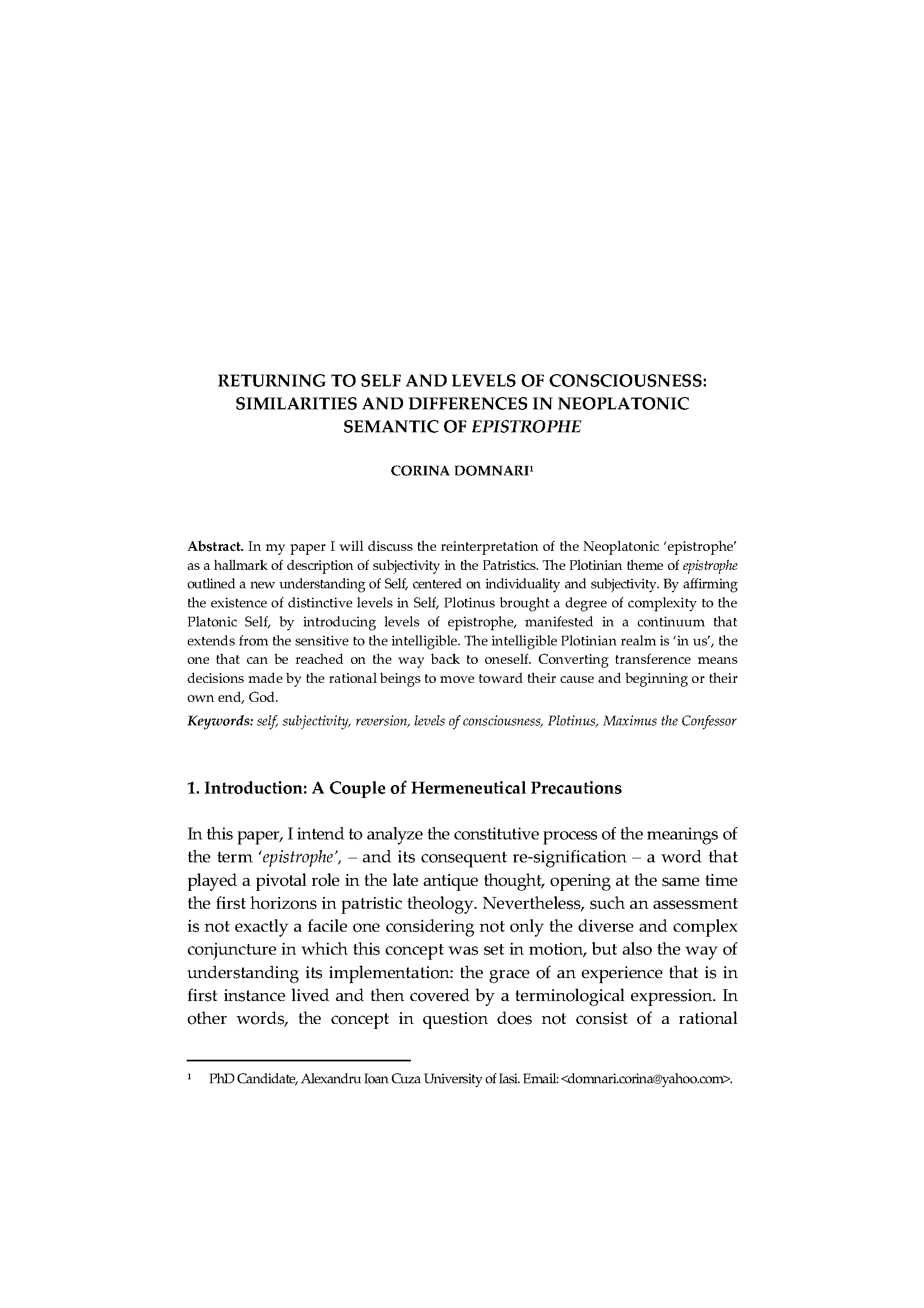RETURNING TO SELF AND LEVELS OF CONSCIOUSNESS: SIMILARITIES AND DIFFERENCES IN NEOPLATONIC SEMANTIC OF EPISTROPHE
DOI:
https://doi.org/10.62229/aubpslxxi/2_22/1Keywords:
self, subjectivity, reversion, levels of consciousness, Plotinus, Maximus the ConfessorAbstract
In my paper I will discuss the reinterpretation of the Neoplatonic ‘epistrophe’ as a hallmark of description of subjectivity in the Patristics. The Plotinian theme of epistrophe outlined a new understanding of Self, centered on individuality and subjectivity. By affirming the existence of distinctive levels in Self, Plotinus brought a degree of complexity to the Platonic Self, by introducing levels of epistrophe, manifested in a continuum that extends from the sensitive to the intelligible. The intelligible Plotinian realm is ‘in us’, the one that can be reached on the way back to oneself. Converting transference means decisions made by the rational beings to move toward their cause and beginning or their own end, God.





